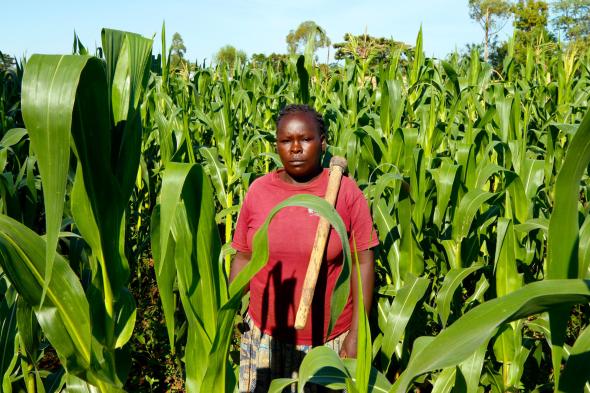Could Climate Change Build Big Business in Kenya?

When Sam Rigu was a kid, growing up on a maize farm in central Kenya, his grandmother made a disturbing prediction. “She said something I’ll never forget,” he recalls. “She said, ‘Twenty years ago we were harvesting double this. Twenty years from now we might have nothing to feed our children.’ That really scared me.” It wasn’t until many years later, when Rigu first learned about climate change as a university student, that he realized just how right she was. After college, Rigu began managing his own maize farm, and saw firsthand the toll that rising temperatures and unpredictable rain had on his corn. He sought solutions, but he was never much of a green thumb: His dream was to help farmers with the business side of farming. One day, on a shopping trip to the rice-trading hub of Mwea, he saw his opportunity. Outside every rice processor’s storefront were great mountains of chaff, the featherweight rice husk that is separated from the grain during processing. Many of the heaps Rigu saw were burning, just to get rid of the stuff. But where most people saw trash, Rigu saw shillings. “I decided to work around the waste and see if I can make it into something economically viable,” he says. Rigu’s entrepreneurial spirit is common in Kenya, where everyone seemingly has a side hustle and every sidewalk teems with ad-hoc businesses. But he’s also part of a growing niche that could help small-scale farmers—the lifeblood of Kenya’s economy—adapt to the challenge of climate change.

